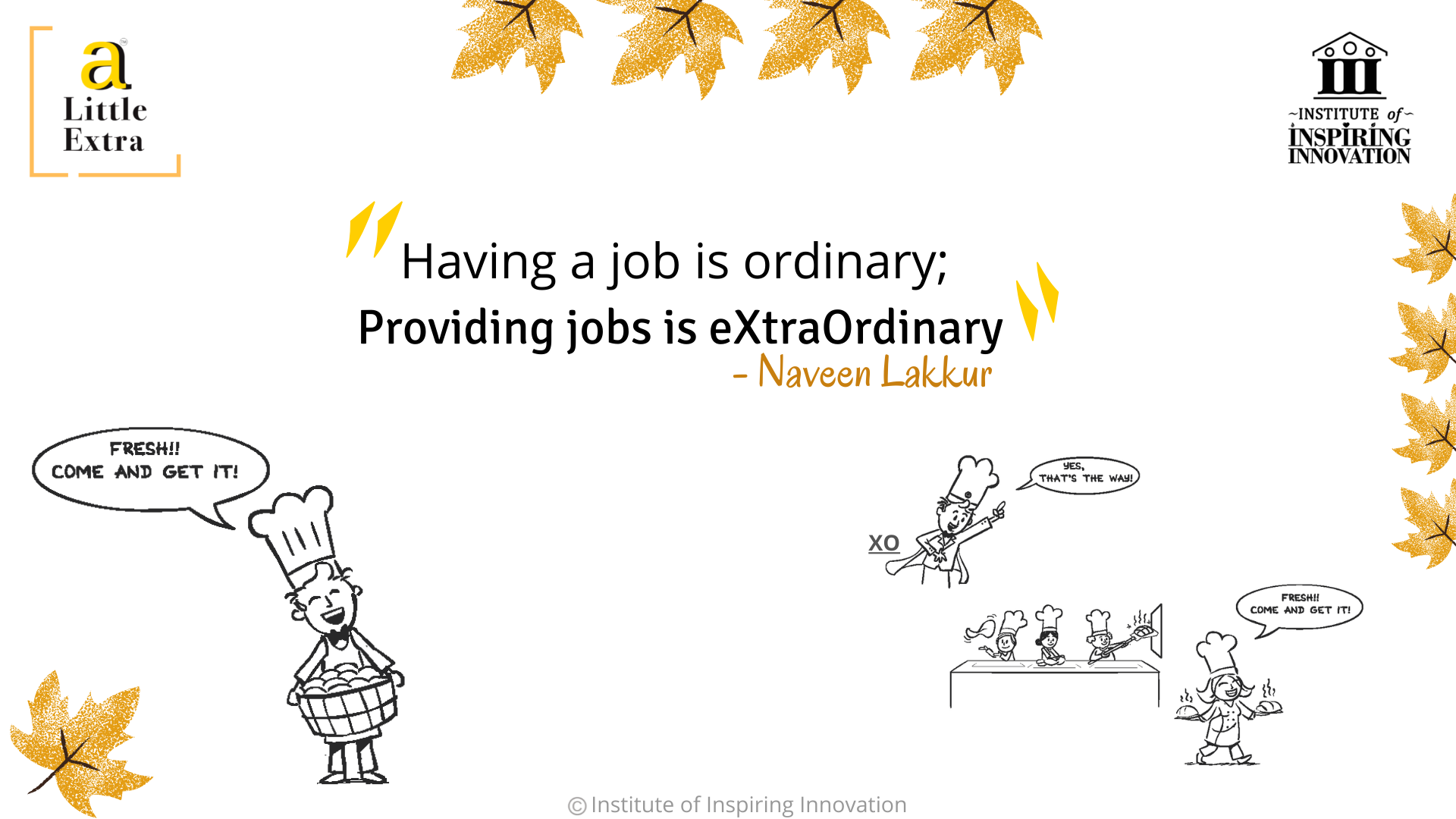Providing jobs is eXtraOrdinary

“Having a job is ordinary; Providing jobs is eXtraOrdinary.” – Naveen Lakkur
The economy runs when people are employed. Governments have motivated people to start ventures and create employment opportunities for others.
Progress has always been collective. Ideas may have been solitary, be it in the past or present, but execution and implementation and the success of an idea is a joint effort. And when this collective effort takes place, humankind evolves.
When a person comes up with the idea of providing jobs to people, they are essentially working for a cause. The cause of uplifting communities. As they say, service to humanity is service to god. Let us look at a few examples of job creation.

Leave a comment